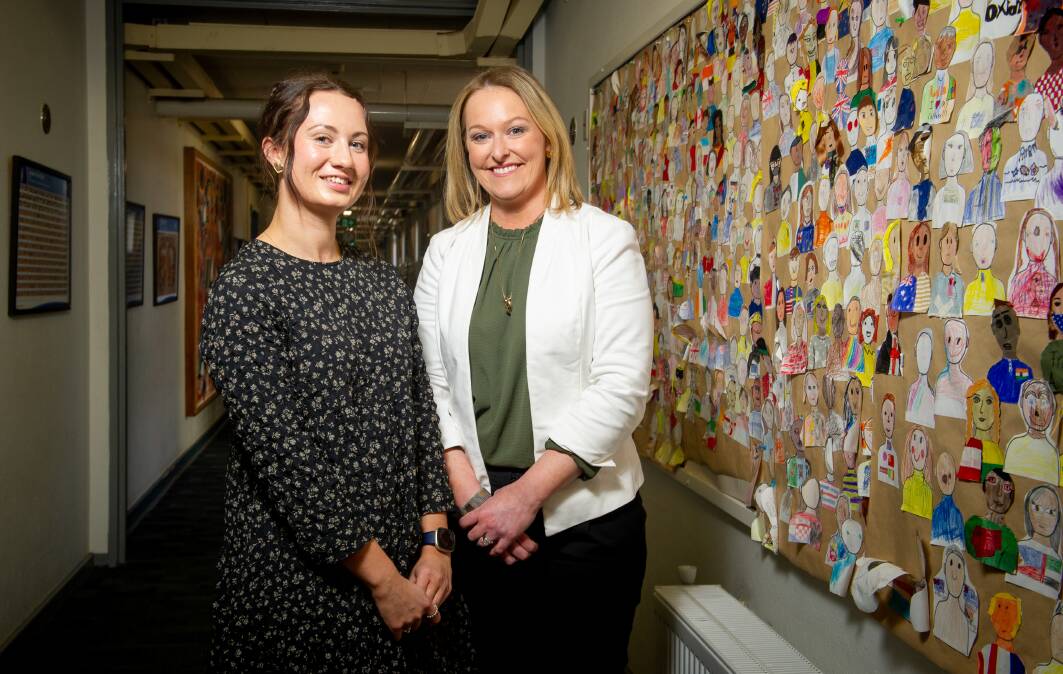
A program which has shown to boost teachers' morale and improve student achievement in reading and maths will be rolled out to 1600 more educators in a bid to address the national shortage of teachers.
Quality teaching rounds developed by the University of Newcastle will get $5 million over four years from the federal government as part of the national teacher workforce action plan.
University of Newcastle Laureate Professor Jenny Gore said the program had strong evidence behind it from seven randomised control trials since 2014.
"There's nothing else in Australia in education that has subjected itself to this much rigorous research," she said.
"It's particularly important in terms of the concerns we all have about retaining new teachers in the profession, particularly at a time when it's under such pressure."
The program involves groups of four teachers gathering to discuss a professional reading and then observing each other teaching a lesson.
The participants then code the lesson using a model with three areas:
- Intellectual quality: deep understanding of important knowledge
- Quality learning environment: creating a positive classroom to boost student learning
- Significance: connecting the learning to students' lives and the wider world
Professor Gore said the model worked well for any type of lesson, regardless of subject matter or teaching methods used.
"At the moment, there's a lot of talk about the importance of explicit instruction and sometimes that's set up as a false dichotomy with inquiry oriented learning, whereas teachers use both at different times," she said.
"What we would argue is you can do either of those well or poorly and this framework is a quality teaching model gives teachers a framework with which to think about to what extent is this a good lesson."
Lyneham Primary School ran a trial of quality teaching rounds last year and found that it was so successful that they decided to roll it out for all teachers in term 1 and term 2 this year.
Principal Merryn O'Dea said the program brought together teachers with different levels of experience to learn from each other and to give and receive direct, specific feedback.
"What it really does is build trust very quickly with a group of teachers who you might not interact with in your day to day [work] so we're building that professional network for teachers," Ms O'Dea said.
Year three teacher Kacey Sturt said she quickly overcame any nervousness about teaching in front of her colleagues.
"It wasn't about the teacher. It was about what they did. And using the model just made it really clear to see maybe things that we could be doing more of or things that we were doing really, really well," Miss Sturt said.
"It gave you more confidence to just try things a little bit out of your comfort zone, but you felt more confident because you'd seen it in practice before."
Professor Gore said the program was shown to be cost effective as it required teachers to do a two-day training program and then four days of work per term for a long-term benefit to teachers and students.
"We're not trying to make money, we're trying to make a difference," she said.
"We work in a kind of social enterprise, not-for-profit way. So we're not like some PD providers, I guess who are charging schools tens of thousands of dollars to buy into their initiative, often with very little evidence of impact."
Ms O'Dea said her school could focus on a particular subject area in future rounds.
"We know that when we have consistent, whole-school practice student learning achievement is increased," she said.
We've made it a whole lot easier for you to have your say. Our new comment platform requires only one log-in to access articles and to join the discussion on The Canberra Times website. Find out how to register so you can enjoy civil, friendly and engaging discussions. See our moderation policy here.







